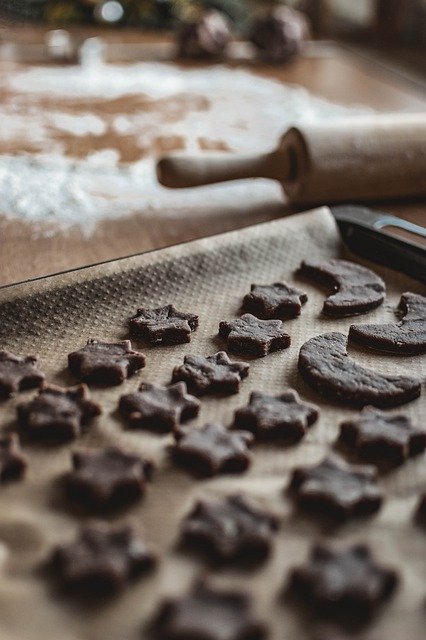An Incomplete History of Mexican Wedding Cakes – Yahoo Lifestyle
“You can’t talk when your mouth is full of powdered sugar,” Rose Levy Beranbaum tells me over the phone. We’re discussing Mexican wedding cakes—also known as Russian tea cakes, Swedish tea cakes, pecan butterballs, pecan sandies, polvorónes, and plenty of other names—because I’m trying to figure out where in the hell these delightful, powdered sugar-dusted holiday cookies originated.
Levy Beranbaum, a cookie expert and author of nearly a dozen baking cookbooks, is relating a story about momentarily debilitating a local newscaster who took a bite of one of her Mexican wedding cakes. “He couldn’t talk! And the powdered sugar went all over his pants and suit,” she laughs. “The cookies are explosive and that’s part of what’s so wonderful about them.”
I fully agree, and I’d go as far as saying that eating a Mexican wedding cake is something of a masochistic experience: You’re bound to end up with powdered sugar-dusted clothes and lips, and if you try to talk—or, god forbid, laugh—while eating one, be prepared to choke and cough and heave white powdery clouds like some kind of wholesome Tony Montana. Mexican wedding cakes are light and elegant, yet also messy and somewhat dangerous to consume during polite conversation.
Quite homely in appearance, they require little skill to bake and only a handful of common ingredients. (So little skill, in fact, that they were the first cookie I ever learned to make, thereby lodging them deep into the nostalgia center of my brain.) They’re always small, hand-formed, coated in powdered sugar, and containing ground nuts of some kind—often pecans, sometimes walnuts or almonds. They’re my buttery, crumbly Proustian madeleine, and the only cookie I make without question year after year for Christmas.
But if there’s one thing I can’t shake about them, it’s their completely nebulous family tree.
My mom tells me that our family recipe came by way of her sister, who was introduced to them at a party in the early 1970s, where they went by the name Swedish tea cookies. She’s not sure exactly how they became known on her hand-written recipe card as “Mexican Wedding Cakes / Russian Tea Cakes.”
Indeed, there’s a sort of collective amnesia about these cookies, as though they appeared out of nowhere yet seemingly hail from everywhere. Many sources I’ve consulted suggest that they were once largely known as Russian Tea Cakes, but that a surge in popularity in Tex-Mex cuisine led …….
Source: https://www.yahoo.com/lifestyle/incomplete-history-mexican-wedding-cakes-191059219.html
